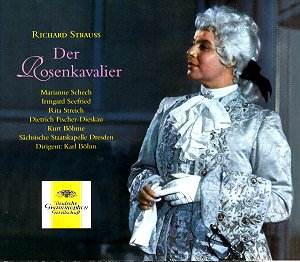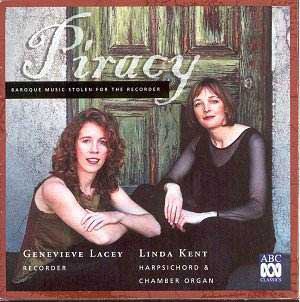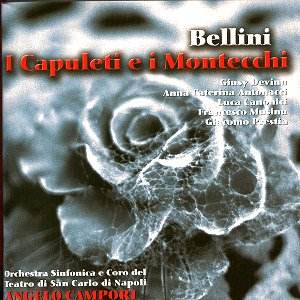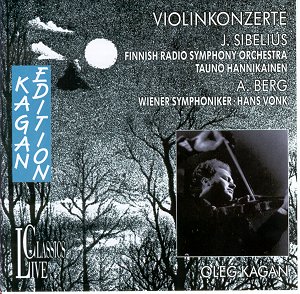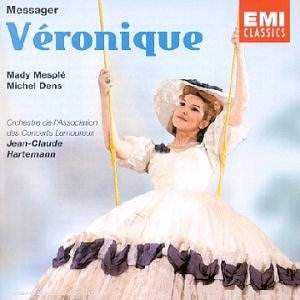 Composer: André Messager
Composer: André Messager
Works: Véronique – operetta (complete with dialogue)
Performers: Mady Mesplé (Hélène), Michel Dens (Florestan), Andrea Guiot, Denise Benoit, Jean-Christophe Benoit, Michel Dunand, Jacques Pruvost, René Duclos Choir, Orchestre de l’Association des Concerts Lamoureux/Jean-Claude Hartemann
Recording: Rec. Paris, 1969
Label: EMI
André Messager, often overshadowed by the towering figures of his contemporaries, finds a fitting showcase in his operetta Véronique, which premiered in 1898. This work encapsulates the vibrant spirit of the opéra comique, a genre that blossomed in Paris, drawing on the effervescent influence of Jacques Offenbach while retaining its own unique charm. Messager’s craftsmanship shines through a narrative steeped in romanticism and whimsy, exploring the complexities of love through the lens of French fashion in the 1840s. His deft orchestration and melodic sensibility mark him as a composer worthy of reevaluation, particularly in light of this excellent recording.
The performance of Véronique is anchored by the engaging portrayals of its leads, Mady Mesplé and Michel Dens. Mesplé’s portrayal of Hélène is a masterclass in light lyricism, her soprano voice characterized by a delicate touch and expressive phrasing. Her entrance is particularly enchanting, where Messager’s orchestration of wind and strings creates an ethereal atmosphere that perfectly complements her vocal line. Dens, as Florestan, brings a warm, resonant quality to his role, delivering his lines with a commanding presence that balances Mesplé’s lightness. Together, they navigate the operetta’s intricate ensemble pieces with an evident rapport, especially in the ambitious quartet “Charmant, charmant,” where their voices intertwine with a seamless blend that highlights both the charm of the characters and the cleverness of Messager’s writing.
The recording quality is commendable, with the engineering capturing the orchestral colors with clarity and depth. The soundstage allows each instrumental layer to breathe, ensuring that the orchestral textures do not overwhelm the vocal lines, a common pitfall in operatic recordings. The transfer from the original master tapes has preserved the vibrancy of the performance, although the indexing could have benefitted from more thoughtful organization to enhance the listener’s experience. The absence of liner notes is unfortunate, as insights into the context and nuances of the work would undoubtedly enrich the listening experience.
Messager’s musical language in Véronique, marked by flowing melodies and playful harmonies, invites comparison with the works of his predecessors, particularly Offenbach and the later Savoy operas. The Act 1 finale, with its lively rhythms, channels the spirit of Offenbach while allowing Messager’s own voice to emerge distinctly. The well-formed phrases and the interplay between the orchestra and soloists demonstrate his mastery of the genre, allowing light-hearted moments to coexist with more profound emotional currents. The inclusion of the hit song “De ci, de là” is a testament to the enduring appeal of the operetta, showcasing Messager’s ability to craft tunes that linger in the memory long after the final curtain.
The performance of Véronique stands as a compelling testament to Messager’s artistry, revealing a composer who successfully navigated the delicate balance between humor and sentimentality. This recording not only highlights the strengths of the soloists but also serves as an illuminating example of operetta’s rich tapestry in the late 19th century. Its charm and elegance, coupled with a high level of musicianship, make it an essential addition to the catalog of French operetta. The work encourages listeners to rediscover the light yet deeply expressive world that Messager created, promising a delightful experience that transcends its historical context.
